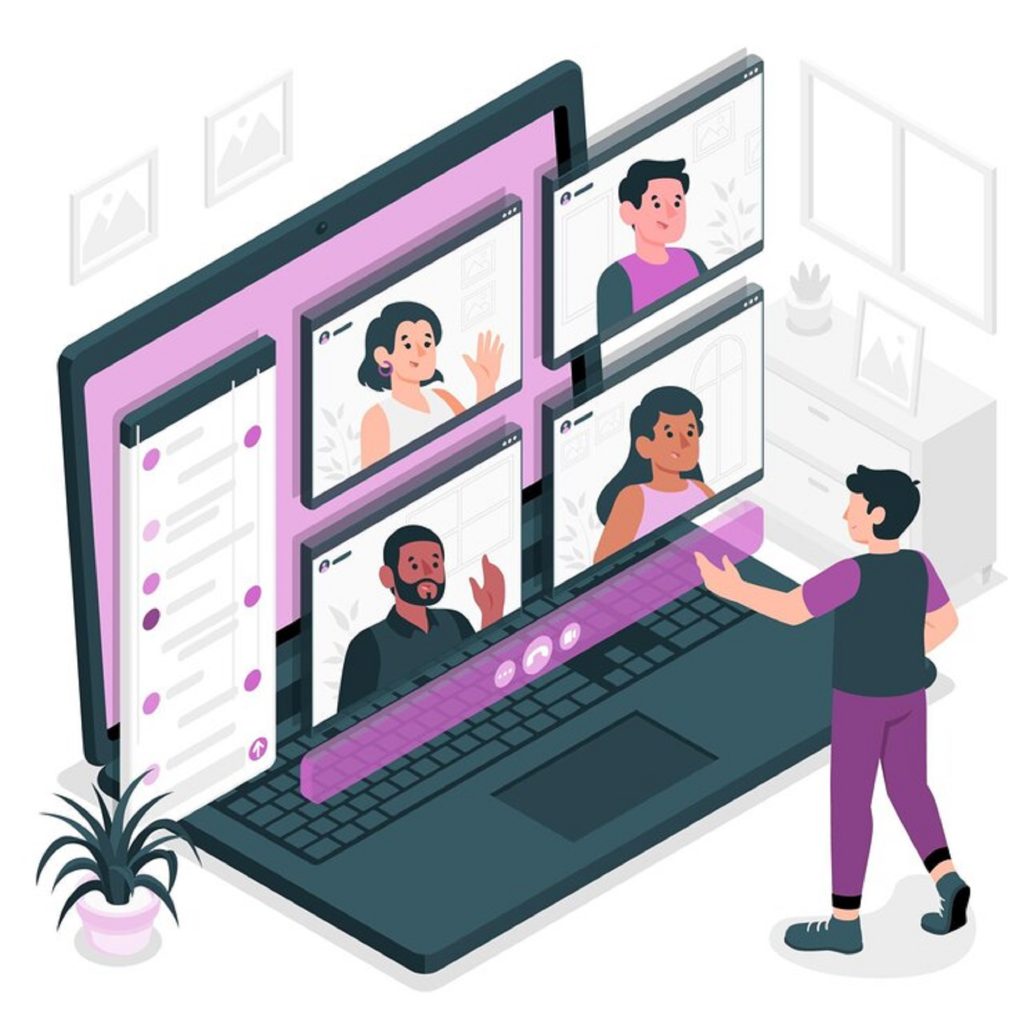The popularity of virtual events is increasing as more people are embracing and utilizing the advantages of a virtually connected world. Of all the changes that we adopted during the pandemic era; the digital event experience stands out as an important one. That said, virtual gatherings have redefined our understanding of meetings and conferences, ushering all of us into a new era of engagement and connection.
As audiences are on their toes and excited to be a part of this trend, organizing such virtual events comes with its challenges. Despite the creative possibilities in the digital realm, these events are more than a combination of technological solutions. They must open doors to endless possibilities. Today, some of the spectacular virtual events let the participants actively engage, share their knowledge, and broaden their network from the comfort of their offices and homes.
Here we throw light on the top tips that will help you make your next virtual event more successful.
Virtual Event Experiences – Explained
A virtual event conducted under the guidance of event professionals is a dynamic digital gathering uniting people, businesses, and organizations globally. The event utilizes webinars, digital trade shows, and online conferences that segregate it from typical in-person events.
Virtual events offer an online space for the participants to connect, engage, collaborate, learn, and share ideas without being limited to physical locations. Benefits of Virtual Events
- Virtual events help you reach a global audience. It increases the diversity, inclusivity, and reach of the event.
- Digital events are budget-friendly. They cut the cost of managing a physical space and save the traveling costs of the participants.
- Online events enhance availability for everyone. They address various preferences like disability, language, learning style, and device compatibility for everyone.
- Digital events let the participants join events from any part of the world. They can fit the event into their schedule easily without having to move a step from their places.
- Digital events foster meaningful connections.
- They also offer comprehensive insights and analytics into attendees’ preferences, engagement, behavior, and so on.
Read More: SalesTechStar Interview with Neeraj Methi, Vice President of Solutions at BeyondID
Top Tips to Deliver Enhanced Virtual Event Experiences
1. Identify your audience
As you sit down to discuss how to start the process of conducting a virtual event for your audience, you must first determine who are your audience. Your target audience will impact every aspect of your event, such as the speakers you choose, the topics you cover, and the time of the event.
2. Craft a Compelling Event Strategy
Many event organizers wrongly believe that they can repackage in-person events into virtual ones. The reality is that virtual events require an entirely different strategy because the medium is different, the technology used is different, and the way attendees interact is also different.
Craft a well-rounded strategy outlining your goals, budget, and action plan for the big day.
A good place to start crafting a strategy is to find the “why” or purpose of the event. Talking on the business side, what do you intend to achieve with the event? For instance, you want to increase brand awareness or grow memberships.
3. Create an easy to interact event atmosphere
Remember that it is a virtual event and unlike an offline event, you cannot acknowledge every raised hand there. So, you need to devise strategies on how your digital audience can get an equal chance of interacting in the event. As you have prepared hard for the event, you cannot settle for low engagement.
Research says that 47% of people are more likely to ask a question at a virtual event. And the key is to find opportunities for people to interact.
4. Promote your event before, during, and after
Irrespective of the platform of your event, physical or virtual, you will need attendees to make it successful. In simple words, you need to do event promotion. Promotion is an ongoing thing that should happen before, during, and after the event.
5. Schedule tech rehearsals
Finally, you should schedule tech rehearsals to find out if the technology you are about to use is reliable. You should host rehearsal sessions with your speakers and crew and have a plan B in case things go south.
A majority of virtual event organizers make a mistake of assuming that their attendees are tech-savvy. In reality, individuals will have different comfort levels with technology. For your audience who are not used to attending such virtual events, joining through a simple clickable Zoom link will be a task for them.
Wrapping Up
Whether we are organizing a virtual event or an in-person one, remember that people in the world are hungry to connect. All you need to do is to offer them a platform that helps them forge meaningful connections. The event organizers, speakers, and other staff should be proactive to keep the audience engaged and connected.
Inspire, educate, and innovate through virtual events. We hope this piece of information will help you.
Read More: Enhancing Customer Experiences with Martech and Salestech Integrations – What Practices to Follow





















